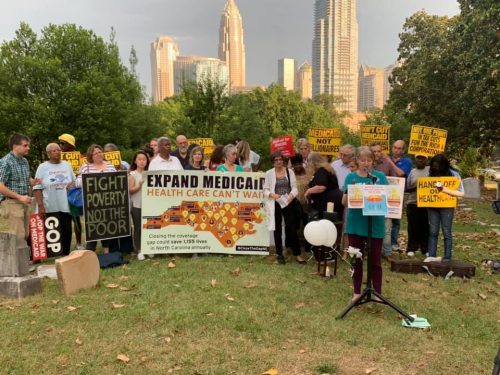
Living in Charlotte is really pushing my buttons in different ways. Namely, I keep noticing that people of color rely on the bus to get around the city, and how little financial support there is to improve the public transit. The bus system is subpar because it is underfunded; it is underfunded because the city government neglects and continues to limit resources for those who use it. Even though I realize this uncomfortable truth, I can’t help but to be annoyed about the unreliable transportation system—and thus ashamed about this feeling. If I miss the bus, or if I have been waiting for a long time for it, I could just request a lyft. However, this isn’t the case for most using public transportation. The bus needs to come in order for some individuals to feed and take care of their family, go to work, or simply move from one place to another.
Yet, I am still aggravated. What does that make me? A hypocrite? It feels wrong to be advocating for the wellbeing of individuals who have been abused, neglected, and oppressed, and at the same time be annoyed about the little impediments to my daily life.
Throughout my work so far, I have been observing court cases—some happier, as the child who has been under DSS (Department of Social Services) custody found a safe, permanent home; but some extremely sad, as a few-months-old baby was ordered to return to the neglectful and abusive parents due to the lack of evidence presented. I also have been gathering the educational progress and outcomes of foster care children and observing whether their needs were met. This Wednesday and Thursday, I attended a racial equity workshop called Race Matters for Juvenile Justice. Teaching the often-silenced narratives of American history, starting from the total annihilation of Native Americans and genesis of slavery, to Jim Crow Laws and the disproportionate amount of homelessness among people of color, the facilitators pushed participants to remind themselves of the generational cycle of oppression into their everyday lives. Later in that Thursday, Jenna and I took part in a state-wide vigil that sought to fight for the expansion of Medicaid. We listened to countless personal stories that participants shared, in which the lack of universal health care took individuals’ lives. And yet, I still express frustration in the public transportation system here.

It is so easy to pat myself on the back, commending myself on the “philanthropic” things I have done so far here. It is also very easy to detect the societal and institutional racism and criticize “the system,” especially as someone who is working to support those who have been persecuted by systemic oppression and as a student who always has been keen about queer and deconstructionist theory. However, what I have realized so far is that I am so LOST. I am so lost in how to battle mixed feelings of guilt, anger, gladness, shame, hopefulness, frustration, etc. in a way that is constructive. Sometimes, all this learning, listening, and working seem to be so futile, as I know for a fact that I, alone, cannot reverse the wrongdoings of the past and present. Nevertheless, what I continue to learn is that experiences that push me to think deeper, reach out to others, and listen and understand with compassion, ground me; they urge me to keep fighting, no matter how difficult or pointless the journey seems to be. Lastly, the experiences remind me that there are good people in this world who care about doing what is right. And I must surround myself with such positive individuals and work together to achieve justice.
